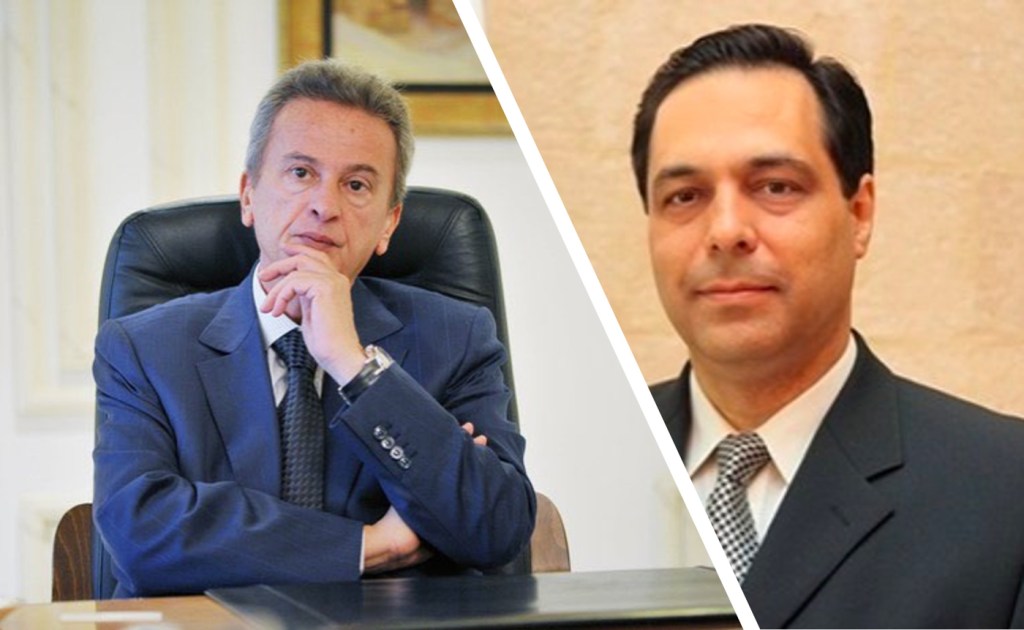The Lebanese central bank will intervene directly to curb the freefall of the Lebanese pound, Prime Minister Hassan Diab said in a speech on Thursday, 100 days after his government was formed amidst Lebanon’s worst-ever financial crisis.

“The [central] bank will intervene in the market, starting today, to protect the Lebanese pound and curb the increase of the exchange rate with the dollar,” said Mr Diab. “I am aware of the suffering of the Lebanese people caused by the high price of the exchange rate of the dollar to the Lebanese pound and the repercussions of this rise on food prices and consumer goods.”
Beginning last summer, a liquidity crisis caused the value of the local currency to plummet while unemployment rises. The dollar is currently sold at around 4000 Lebanese pounds on the black market, though the local currency officially remains pegged to the dollar at the rate of 1,507.5. The price of imported Egyptian rice increased by 52 per cent in one year and now costs just under 3,000 Lebanese pounds per kilo, according to data collected by the World Food Programme
Mr Diab did not specify how the Banque du Liban (BDL) would intervene to stop the Lebanese pound’s freefall. The central bank has repeatedly tried to force local changers to sell their Lebanese pounds lower than the market rate in the past months. They refused and went on strike on April 23.
Mr Diab has argued in the past that the BDL played an important role in causing the financial crisis. In his speech on Thursday, he highlighted that one of his major achievements was the launch of “an audit in the central bank’s budget, for the first time in the history of Lebanon.”
A top BDL official was arrested last week, interrogated and released on Wednesday after paying a 300 million Lebanese pound bail, or $200,000 at the official rate. Lebanon’s financial prosecutor accused him of manipulating the local exchange rate.
Mr Diab also announced on Thursday that food imports will be “supported”, without specifying how. “The Lebanese will soon see a decline in the price of these commodities,” he said.
Lebanon relies on imports, but costs dramatically increased as the dollar, which is necessary to pay for them, disappeared from the local market. Local think-tank Triangle calculated that the price of low-cost traditional dishes such as mujaddara, made with rice, lentils and onions, increased by 52.33 per cent and tomatoes are 128.81 per cent more expensive than last April, it said.
In an op-ed published by the Washington Post on Wednesday, Mr Diab warned that Lebanon is facing a “major food crisis”, in part due to the coronavirus pandemic that has exacerbated a pre-existing financial crisis.
Appealing for foreign aid, he concluded that “it would be a tragedy upon a tragedy if our efforts to beat the Covid-19 epidemic eventually gave way to mass starvation and migration, the effects of which would be felt for generations.”
THE NATIONAL

Leave a Reply
You must be logged in to post a comment.